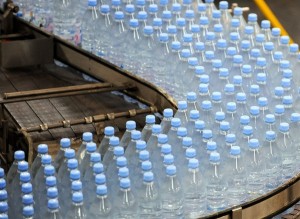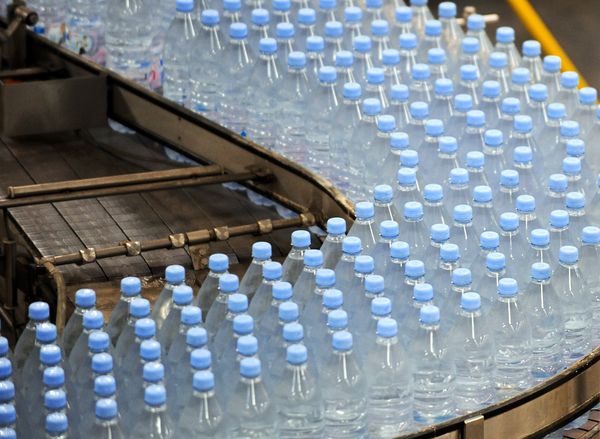
AFP Photo
The Ministry of Supply closed down a well on Cairo-Alex road on Tuesday that contained large amounts of contaminants.
The well belongs to an unlicensed factory that uses the AquaMina Company trademark, Al-Watan reported. The supply investigation unit also found more than 10,500 unfilled bottles labelled El-Wady inside the factory.
The AquaMina well joins six others shut down by the Ministry Health for not conforming to industry standards including Alfa, Aquadelta, Tiba and El-Wady. Microorganisms including protozoa were found in the water sources of these companies.
In a separate incident, Wadi el-Natron police in Behaira governorate arrested a 30 year old worker on Saturday who had transformed his residence into a water bottling centre using empty bottles, stickers printed with company names and a packaging machine. Al-Ahram state-run newspaper reported that he used a contaminated water tank for filling the bottles.
The Egyptian Federation of Chambers of Commerce (EFCO) issued a statement on Monday stating that although the water sources don’t meet standards, this doesn’t mean that the water is unfit for consumption.
The EFCO said water is treated for before bottling with ozone and ultraviolet rays. It blamed the problem on industry standards that requires not only the conformity of the final product but also of the water source, which the EFCO described as illogical. “That doesn’t apply to imported bottled water as the ministry of health only tests the final product and not the water wells of the exporting country”.
The Ministry of Health conducts regular checks on water sources and closes down factories until they meet standards, according to the EFCO. The bottled water of affected companies is also withdrawn from sale, whether produced before or after the test date. The EFCO criticised this, as bottles produced before test dates are certified healthy and valid for one year.
The EFCO proposed updating the Egyptian standards to match international ones. Egypt is the only country that considers bottled water “medical food” such as diabetes food, which must be registered and examined by the Nutrition Institute, according to the EFCO.
There has been a domestic shortage of bottled water for the past three months, which according to the EFCO is due to the closure of six factories responsible for a quarter of production. Other reasons for the shortage included publicitys about water contamination in some governorates, the heat, power cuts, and summer vacationers, the EFCO said.
The shortage has led to a price increase of bottled water of around eleven percent. Some outlets and small shops have put a limit on the number of bottles a consumer can buy; and some even require consumers to buy extra items to get the water.
Experts from the foodstuff section at the Cairo Chamber of Commerce as well as the Consumer Protection Agency have called on the Egyptian army to increase its production of bottled water, especially as the army has enough wells to produce “Siwa” bottled water. Experts also suggested more investments in the bottled water sector.



